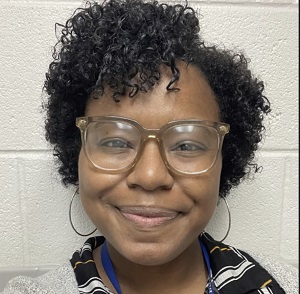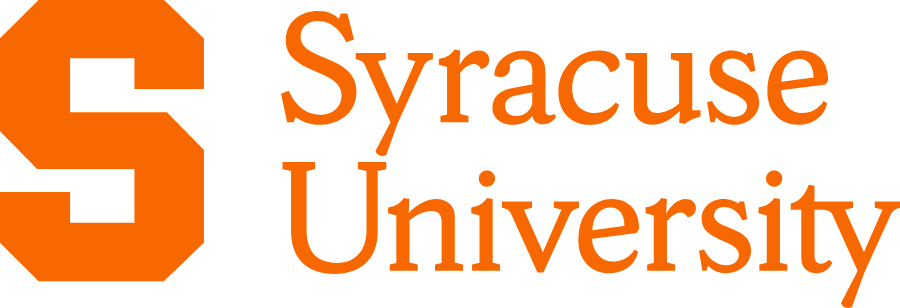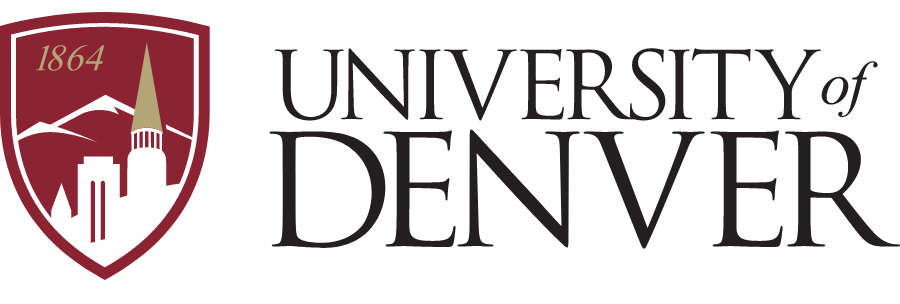A school librarian is a professional information specialist who performs various tasks in an academic field. Some of the main tasks that come with the role of a school librarian are reader’s advisory, reference services, teacher and community outreach, programming, and building a student community within a school library. School librarians may also fulfill the roles of organizing and cataloging media collections and developing database management for the library’s collection. This article will explain information on what a school librarian is, how to become one, a school librarian’s salary and job outlook, and career types that are similar to school librarians.
Featured MLIS Programs
ADVERTISEMENT
Syracuse University
Master of Science in Library and Information Science Online
Syracuse University offers an online MS in Library and Information Science. The program can be completed in 18 months and includes the option to specialize in School Media or customize the program to align with your professional goals. No GRE is required.*
University of Denver
Master of Library and Information Science Online
University of Denver’s Morgridge College of Education offers an online, ALA-accredited Master of Library and Information Science program. Learn from practitioners and gain the service-based skills needed to connect communities with information in the digital age. No GRE is required.*
St. John’s University
Online Master of Science in Library and Information Science
Gain the advanced expertise that information specialist positions require with the online M.S. in Library and Information Science program from St. John’s University. Achieve your career goal by selecting from one of the following specializations:
Arizona State University
M.Ed in Learning Design and Technologies
Create literacy programs and curricula that fully incorporate digital technology and include themes of social justice.
What Does a School Librarian Do?
A school librarian predominantly teaches in primary and secondary schools, where they help students locate and check out materials in the school library collection. School librarians will also teach students how to utilize the library’s resources and how to conduct research and access information, either through the technology in the library or digitally using guides and videos. Depending largely on the size of the library, a school librarian might be responsible for managing the entire library or just one aspect of it, such as technical services. Nonetheless, a school library plays many roles in ensuring a school’s library has as much material, physically and digitally, accessible to students in the school, that the school library has resources that students can use in conjunction with their academic learning environment, as well as a community space to gather and connect with fellow students.
Why are School Librarians Important?
Though, unfortunately, not all schools have the funding or space to house a library in the school building, most schools, especially in high school and higher education establishments, have libraries that students and teachers can access. Mostly, school librarians in primary and secondary schools hold a very important and prominent role in a child’s development. Schools with strong school library programs—and a certified school librarian—secure a student’s path to academic success. School librarians would work with every student in the school, teaching them to think critically, providing the resources and support learners need in school and beyond, and nurturing their creativity. School librarians are also essential partners for all teachers when they are working in schools. The position is similar to that of a teacher, and that’s because school librarians will spend similar amounts of time with students as a teacher would. School librarians’ interactions, such as showing students how to find required resources and helping them achieve their dreams, are what make school librarians professional educators and an important part of a student’s life. School librarians provide print and digital materials that meet the diverse needs of the students, and school librarians and teachers collaborate on curriculum and student learning objectives to ensure students have all the guidance and resources needed in their learning process. School librarians are leaders in school environments, as they are an essential part of helping shape the curriculum of the students and representing the learning needs of all the students and teachers.
Steps to Become a School Librarian
To become a school librarian, there are steps, similar to other information professional roles, that a person needs to take before getting to the final step of applying for a school librarian position. A librarian in any informational organizational setting is typically expected to have an undergraduate degree in any subject area and a master’s degree in library science or information science. Professional or certified school librarians are specifically trained to work with students and have extensive librarian-related experience. Additionally, in most states, K–12 public school librarians must obtain state licensure, which typically requires an appropriate degree plus a passing score on the Praxis Library Media Specialist test. Listed below is the typical path taken by a person pursuing a career as a school librarian.
- Earn a bachelor’s degree. For many library positions and careers, a bachelor’s degree is required. A bachelor’s degree can be earned in library science or any other academic subject.
- Apply for and enroll in an ALA Accredited Master’s Program. Once a bachelor’s degree is acquired, a degree from an ALA-accredited Library Science Master’s Program is required. Accreditation from the ALA shows that a program meets the association’s standards and that the individual is knowledgeable of library information science practices at a graduate level.
- Take the teacher licensing exam and receive your Professional Educator License (PEL). Aspired school librarians will need to receive their PEL and pass the state test or have an out-of-state license already. When looking to become a school librarian, there is the requirement to have received a Professional Educator License, this ensures that the librarian is licensed to teach. This license can be obtained whilst in an ALA-accredited MLIS graduate program.
- Apply to Become a School Librarian. Once the degree is acquired and licensing passed, then an individual can begin applying for open school librarian positions. Those who are currently licensed as teachers in another subject may also choose to add a school librarian endorsement to their existing license by earning a master’s degree in library science.
Featured MLIS Programs
ADVERTISEMENT
Syracuse University
Master of Science in Library and Information Science Online
Syracuse University offers an online MS in Library and Information Science. The program can be completed in 18 months and includes the option to specialize in School Media or customize the program to align with your professional goals. No GRE is required.*
University of Denver
Master of Library and Information Science Online
University of Denver’s Morgridge College of Education offers an online, ALA-accredited Master of Library and Information Science program. Learn from practitioners and gain the service-based skills needed to connect communities with information in the digital age. No GRE is required.*
St. John’s University
Online Master of Science in Library and Information Science
Gain the advanced expertise that information specialist positions require with the online M.S. in Library and Information Science program from St. John’s University. Achieve your career goal by selecting from one of the following specializations:
Arizona State University
M.Ed in Learning Design and Technologies
Create literacy programs and curricula that fully incorporate digital technology and include themes of social justice.
How To Get Your School Librarian License
The best way to begin a path into a school librarian career is to find a program at an institution of higher education that helps students with the coursework necessary to complete the training in the school library field. Students would need to complete the Professional Educator License (PEL) test as part of the application process. Along with the Professional Educator License (PEL), some graduate programs and school libraries require the student to have a PEL with a teaching endorsement in the content area of Library Information Specialist (LIS) or Evidence-Based Assessment of Teacher Effectiveness (edTPA). The edTPA is an evidence-based assessment of a teacher’s effectiveness and is completed through a state certification testing system. To complete this assessment, students will need a passing score of 39. The IELTS test is an essential portion of the professional educator license. The range of the test results can vary from 100 (the lowest) to 300 (the highest). Students are required to take the test within one year of being in the program and pay the fee.
Below are some of the fees that you will need to pay as you are working through the certification process. This is not an exhaustive list, and fees may change over time.
- edTPA fee: $300 (Fee for transfer of edTPA results from another state: $50)
- A background check (if required to use an approved vendor): $18
- ELIS License registration fee: $10 per year
Once a student passes the MLIS graduate program and receives a teaching license within their school state, the individual can move forward with sending applicants to prospective school library positions. Requirements to become a school librarian may vary by state. School librarians must also make sure they maintain recurring state requirements showing the librarian has met certain standards in their education to receive and hold the degree; this ensures that the librarian is qualified to be an educator in a school setting.
School Librarian Pay and Career Outlook
According to the US Bureau of Labor Statistics (BLS), librarians in elementary and secondary schools earned a median annual wage of $60,780 in 2018. And librarians in college and university libraries earned a median annual salary of $64,130 in 2018. However, librarian salaries in K-12 schools can vary greatly. Librarians working in larger libraries tend to earn higher salaries, with salary ranges that frequently differ from state to state.
Careers That Are Similar to School Librarianship
Many school librarians begin gathering career and field experience by volunteering at local libraries before or while pursuing graduate education in library science. Having prior library work experience in alternative positions provides great skills and resume-building before pursuing a degree position in a library.
Advancement opportunities are also obtainable as a school librarian. Advancement opportunities for school librarians can be roles like assistant director and/or library director, where salaries are commensurate with experience and the added responsibilities these positions entail. In large library systems, school librarians may alternately advance to specialist positions, such as conservators. Listed below are other library career titles that are similar to school librarianship.
- Media Specialist
- School Library Media Specialist
- Teacher Librarian
- Youth Services Librarian
- Young Adult/Teen Librarian
Additional Resources
- American Association of School Librarians (AASL): The American Association of School Librarians (AASL) is a website that provides resources to MLIS students to explore information on school libraries and librarians, grants, continuing education, and national conferences and meetings.
- School Libraries Association: The School Libraries Association is a membership group site that allows members to connect with other School Librarians, allows access to forums, offers local and national events and conferences, and provides information about professional development opportunities. Depending on the MLIS program, some schools will give memberships to their students.
- American Library Association (ALA) Accredited Programs: The American Library Association website provides guides and links toALA Accredited MLIS programs and provides links to library job postings.




